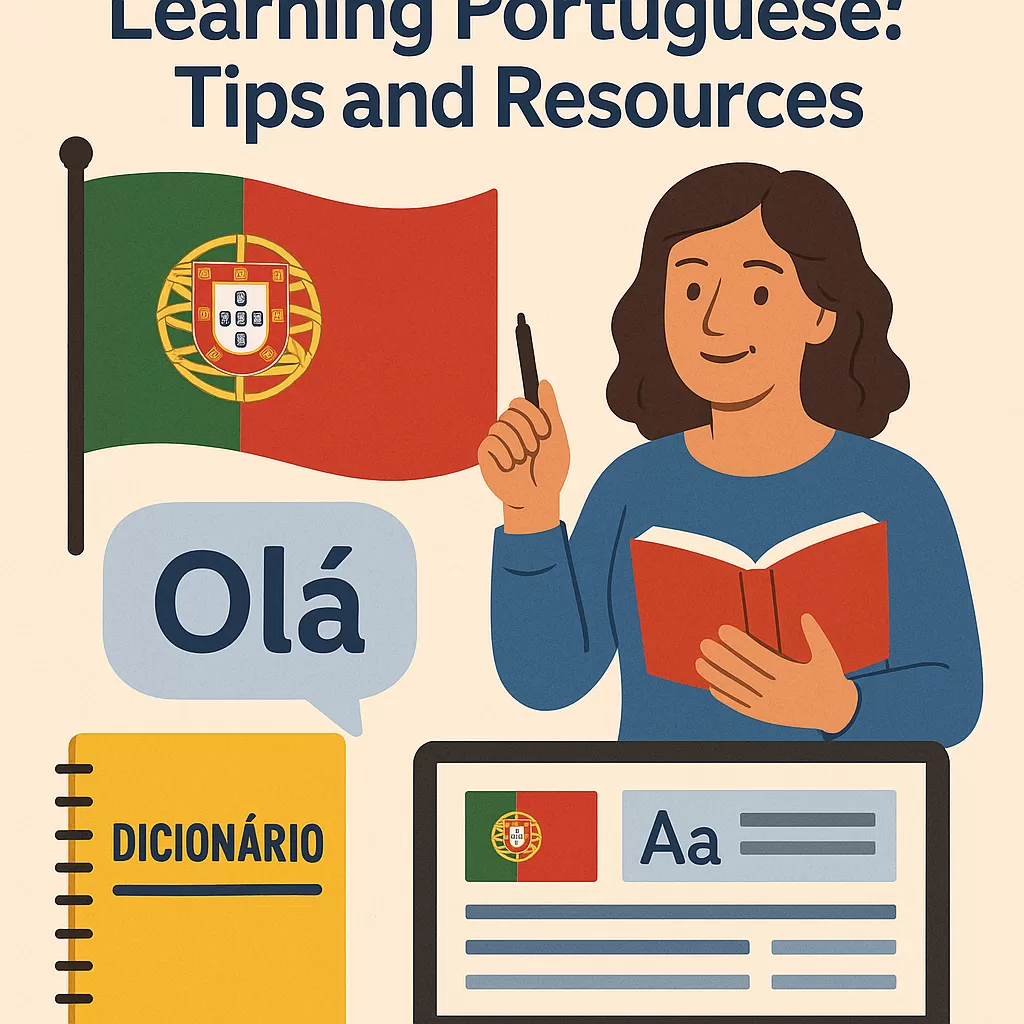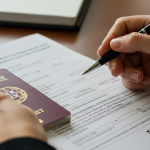
Unlock the Language of Portugal: Your Ultimate Guide to Learning Portuguese 🇵🇹
Ever dreamt of sipping café in Lisbon, exploring the beaches of Algarve, or understanding the passionate lyrics of fado music? Well, learning Portuguese can make those dreams a reality! As someone who’s been through the journey myself, I know it can seem daunting, but with the right strategies and resources, you can absolutely master this beautiful language. This guide is packed with practical tips, effective resources, and actionable advice to help you on your Portuguese learning adventure. Let’s dive in!
Key Takeaways:
- Set realistic goals: Start small and celebrate your progress. Don’t try to learn everything at once!
- Immerse yourself: Surround yourself with the language through music, movies, and conversations.
- Utilize diverse resources: Combine textbooks, apps, online courses, and language partners for a well-rounded approach.
- Practice consistently: Even a few minutes of practice each day can make a huge difference.
- Don’t be afraid to make mistakes: Mistakes are a natural part of the learning process. Embrace them and learn from them!
Why Learn Portuguese? 🤔
Beyond the obvious travel benefits, learning Portuguese opens up a world of opportunities.
- Cultural Enrichment: Immerse yourself in the rich cultures of Portugal, Brazil, Angola, Mozambique, and other Portuguese-speaking countries.
- Career Advancement: Portuguese is a valuable asset in international business, especially in fields like tourism, translation, and education.
- Cognitive Benefits: Learning a new language improves memory, problem-solving skills, and overall cognitive function.
- Personal Growth: It’s incredibly rewarding to connect with people from different cultures and expand your horizons.
“Language is the road map of a culture. It tells you where its people come from and where they are going.” – Rita Mae Brown
Getting Started: Setting Realistic Goals 🎯
One of the biggest mistakes learners make is trying to do too much too soon. Instead, break down your learning journey into smaller, more manageable goals.
- Week 1: Learn basic greetings and introductions.
- Month 1: Master essential vocabulary and grammar concepts like verb conjugations and sentence structure.
- Month 3: Be able to hold simple conversations on familiar topics.
- Year 1: Achieve conversational fluency and be able to understand and express yourself in a variety of situations.
Remember to be patient with yourself and celebrate your progress along the way! 🎉
Essential Resources for Learning Portuguese 📚
The good news is that there’s a wealth of resources available to help you learn Portuguese. Here are some of my favorites:
Textbooks and Workbooks
- “Modern Brazilian Portuguese Grammar: A Practical Guide” by John Whitlam: A comprehensive guide to Brazilian Portuguese grammar.
- “Teach Yourself Complete Portuguese”: A structured course that covers all the essential language skills.
- “Practice Makes Perfect: Complete Portuguese Grammar”: A workbook filled with exercises to reinforce your grammar knowledge.
Online Courses and Apps 📱
- Duolingo: A gamified language learning app that’s perfect for beginners.
- Memrise: Uses spaced repetition to help you memorize vocabulary and grammar.
- Babbel: Offers structured courses with a focus on practical conversation skills.
- italki: Connects you with native Portuguese tutors for personalized lessons.
- PortuguesePod101: A subscription-based service with audio and video lessons.
Language Exchange Partners 🗣️
- HelloTalk: A language exchange app that allows you to connect with native Portuguese speakers.
- Tandem: Another popular language exchange app with a large community of learners.
- ConversationExchange: A website where you can find language partners for online or in-person practice.
Online Dictionaries and Translators 🌐
- WordReference: A reliable online dictionary with definitions, translations, and forum discussions.
- Google Translate: A quick and easy way to translate words and phrases.
- Linguee: A contextual dictionary that shows you how words and phrases are used in real-world examples.
Podcasts and YouTube Channels 🎧
- “PortuguesePod101”: Audio and video lessons for all levels.
- “Practice Portuguese“: Focuses on European Portuguese with engaging dialogues and explanations.
- “Speaking Brazilian“: Offers insights into Brazilian culture and language.
- “Easy Portuguese“: Street interviews with native speakers.
- “Learn European Portuguese Online” by Mia Esmeriz Academy: Great lessons on European Portuguese grammar and pronunciation.
Books and Literature 📖
- Start with children’s books or graded readers to build your vocabulary and comprehension skills.
- Gradually move on to more challenging literature as your proficiency improves.
- Some popular Portuguese authors include Fernando Pessoa, José Saramago, and Machado de Assis.
Movies and TV Shows 🎬
- Watch Portuguese movies and TV shows with subtitles to improve your listening comprehension.
- Some popular choices include:
- “3%” (Brazilian)
- “O Mecanismo” (The Mechanism) (Brazilian)
- “Glória” (Portuguese)
- “Na Corda Bamba” (Portuguese)
Music 🎵
- Listen to Portuguese music to improve your pronunciation and vocabulary.
- Some popular genres include:
- Fado (Portuguese)
- Samba (Brazilian)
- Bossa Nova (Brazilian)
- MPB (Brazilian Popular Music)
Mastering Pronunciation: Sounding Like a Native 🗣️
Portuguese pronunciation can be tricky, but with practice and attention to detail, you can definitely improve.
- Pay attention to nasal vowels: Portuguese has several nasal vowels that don’t exist in English. Practice listening to and imitating these sounds.
- Master the “r” sound: The “r” sound in Portuguese can vary depending on its position in the word. In some cases, it’s similar to the English “h” sound.
- Learn the different accents: Brazilian Portuguese and European Portuguese have distinct accents. Choose which accent you want to learn and focus on its specific pronunciation rules.
- Use online resources: There are many online resources that provide audio and video examples of Portuguese pronunciation.
| Sound | European Portuguese Example | Brazilian Portuguese Example |
|---|---|---|
| Nasal “ã” | maçã (apple) | maçã (apple) |
| Nasal “õ” | limão (lemon) | limão (lemon) |
| “r” at start | rato (rat) | rato (rat) |
| “r” between vowels | caro (expensive) | caro (expensive) |
Grammar Essentials: Building a Solid Foundation 🧱
A strong foundation in grammar is essential for fluency. Focus on these key areas:
- Verb conjugations: Portuguese verbs are conjugated based on tense, mood, and person. Learn the basic verb conjugations and practice using them in sentences.
- Pronouns: Master the use of personal pronouns, possessive pronouns, and demonstrative pronouns.
- Articles: Learn the difference between definite and indefinite articles and how to use them correctly.
- Sentence structure: Understand the basic sentence structure in Portuguese and how to form different types of sentences.
Immersion: Living and Breathing the Language 🫁
The best way to learn Portuguese is to immerse yourself in the language and culture. Here are some ways to do that:
- Travel to a Portuguese-speaking country: Spend time in Portugal, Brazil, or another Portuguese-speaking country to experience the language and culture firsthand.
- Surround yourself with Portuguese media: Listen to Portuguese music, watch Portuguese movies and TV shows, and read Portuguese books and articles.
- Join a Portuguese conversation group: Practice speaking Portuguese with other learners and native speakers.
- Label objects in your home: Label everyday objects in your home with their Portuguese names to reinforce your vocabulary.
- Think in Portuguese: Try to think in Portuguese as much as possible. This will help you to internalize the language and improve your fluency.
Common Mistakes to Avoid 🙅♀️
- Translating word-for-word from English: Portuguese and English have different grammar structures and idioms. Avoid translating word-for-word and focus on understanding the meaning of the sentence.
- Being afraid to make mistakes: Mistakes are a natural part of the learning process. Don’t be afraid to make them and learn from them.
- Giving up too easily: Learning a new language takes time and effort. Don’t get discouraged if you don’t see results immediately. Keep practicing and you will eventually reach your goals.
- Ignoring pronunciation: Good pronunciation is essential for clear communication. Pay attention to the sounds of the language and practice imitating them.
- Not practicing regularly: Consistency is key to language learning. Make sure to practice Portuguese regularly, even if it’s just for a few minutes each day.
Staying Motivated: Keeping the Fire Burning 🔥
- Find a study buddy: Learning with a friend or classmate can make the process more enjoyable and keep you motivated.
- Set realistic goals and reward yourself when you achieve them.
- Track your progress: Seeing how far you’ve come can be a great motivator.
- Connect with other Portuguese learners online: Join online forums or social media groups to share your experiences and get support from others.
- Remember why you started learning Portuguese in the first place: Keep your goals in mind and focus on the rewards of fluency.
European vs. Brazilian Portuguese: Choosing Your Path 🛤️
One of the first decisions you’ll need to make is whether to focus on European Portuguese or Brazilian Portuguese. While the two dialects are mutually intelligible, there are some significant differences in pronunciation, grammar, and vocabulary.
Here’s a quick comparison:
| Feature | European Portuguese | Brazilian Portuguese |
|---|---|---|
| Pronunciation | More closed vowels, clearer pronunciation of consonants, and a more formal sound. | More open vowels, reduced consonants, and a more relaxed sound. |
| Grammar | Uses the “tu” form for informal “you” (although less common now), places pronouns after verbs in certain situations, and generally adheres to more formal grammatical rules. | Rarely uses the “tu” form, preferring “você” for informal “you,” places pronouns before verbs, and often deviates from formal grammatical rules in casual speech. |
| Vocabulary | Some words have different meanings or are used differently in European Portuguese. For example, “comboio” means “train” in Portugal, while “trem” is used in Brazil. | Some words have different meanings or are used differently in Brazilian Portuguese. For example, “ônibus” means “bus” in Brazil, while “autocarro” is used in Portugal. |
| Popularity | Spoken in Portugal, Angola, Mozambique, Cape Verde, Guinea-Bissau, São Tomé and Príncipe, and East Timor. | Spoken in Brazil, the largest Portuguese-speaking country. |
Ultimately, the best choice depends on your personal goals and interests. If you plan to travel to Portugal or have a connection to Portuguese culture, European Portuguese might be the better option. If you’re interested in Brazilian music, movies, and culture, Brazilian Portuguese might be a better fit.
Interactive Practice: Test Your Knowledge! ✍️
Portuguese Verb Conjugation Quiz
Resources for Moving to Portugal and Living Abroad
If you’re learning Portuguese with the goal of living in Portugal, there are some great resources available to help you prepare. Check out these articles to learn more about the visa and immigration process, finding a place to live, and adjusting to life in Portugal:
- Moving to Portugal: Visa and Immigration Process
- Is Portugal a Good Place to Live?
- FinCou – Your Resource for Financial Independence and Location Arbitrage
Final Thoughts: Embrace the Journey! 🌟
Learning Portuguese is a challenging but incredibly rewarding experience. By setting realistic goals, utilizing diverse resources, and practicing consistently, you can achieve fluency and unlock a world of opportunities. Don’t be afraid to make mistakes, embrace the journey, and enjoy the process of discovering a new language and culture. Boa sorte! (Good luck!)



